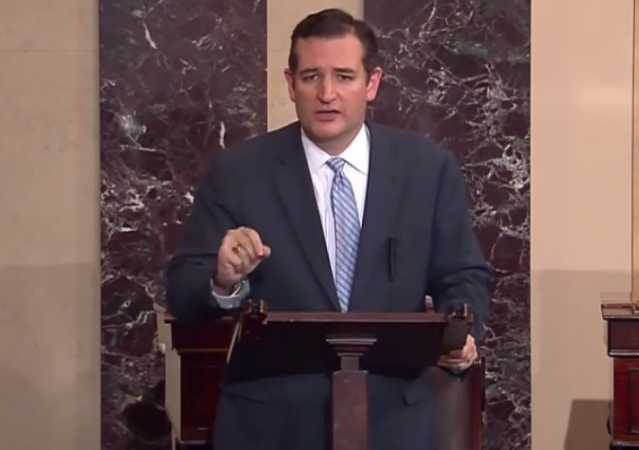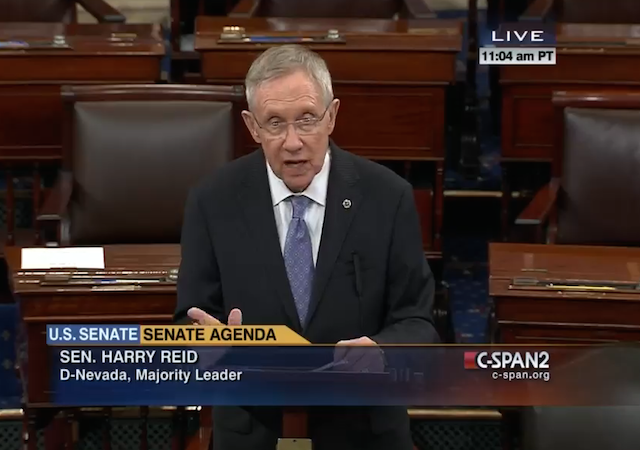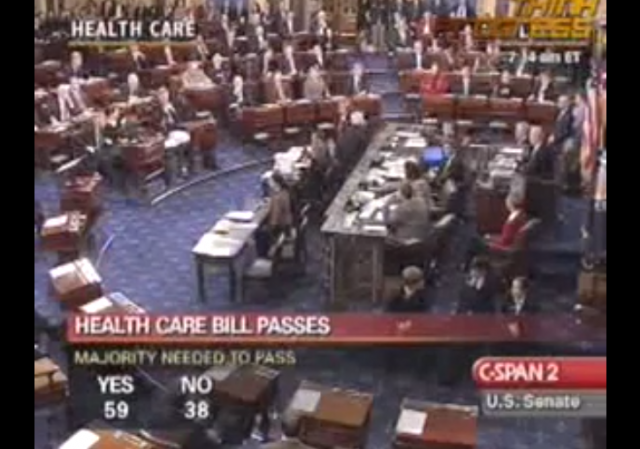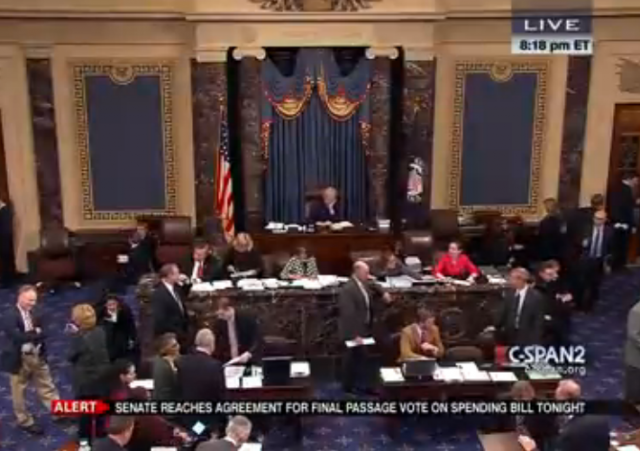Democrats obstruct DHS stopgap funding bill — shutdown imminent
on February 27, 2015
31 Comments
What a mess this has become.
Hell bent on pursuing legislation that would allow for the dissolution of Congressional powers (a.k.a. Obama's Executive immigration overreach), House Democrats refused to pass a short term funding bill for DHS. The bill would've funded DHS through March 19 and prevented an agency shut down.
Unless a deal is reached and an appropriations bill is passed by midnight tonight, agency shutdown is imminent. Some 200,000 of DHS's 231,000+ are deemed 'essential' and would remain in place in the event of a shut down (as they did in the shut down of 2013), as NRO noted.
Weeks ago, the House passed a DHS appropriations bill that sought to curb Obama's immigration overreach. Since the House bill's passage, Senate Democrats have continually filibustered, thus disallowing any Senate debate on the the House bill. Then, a judge in Texas issued a temporary injunction, preventing implementation of Obama's Executive immigration action; the same executive action Democrats insist on implementing.
In an attempt to build a bridge across the impasse, the Senate passed a clean funding bill, creating a separate bill to address the president's Constitutional curb stomp.






















